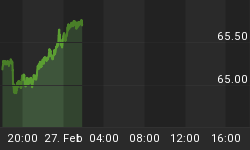Anyone who hasn’t been living under a rock recently knows that blockchain—the digital ledger tech that underpins cryptocurrency—is moving quickly to disrupt pretty much every industry in the world; and it just took one huge leap towards mass adoption with the first trade finance transactions using blockchain by British HSBC bank.
Over the weekend, HSBC said it issued a letter of credit for agro giant Cargill using blockchain—a move that would qualify as the first commercially viable trade finance transactions using blockchain technology in the world.
So, blockchain just performed its first transaction, facilitating the bulk shipment of soybeans from Argentina to Malaysia and it’s not nearly as innocuous as it sounds.
Consider that the paperwork involved in every single transaction is a costly and time-consuming process, and where it concerns letters of credit issued by one bank to another to guarantee that the buyer will pay the seller the back-and-forth is considerable.
HSBC has essentially facilitated a transaction with ING Bank for Cargill in 24 hours, when it would typically take five to 10 working days, using a blockchain platform developed by start-up consortium R3.
R3 is playing a central role in the blockchain boom in banking and it has ambitious plans to overhaul the world’s financial services by reducing costs and increasing efficiency with Corda, its open-source blockchain-inspired distributed ledger technology.
As defined by the United Nations, “blockchain is a chain of ledgers distributed over a network that is robust in its unstructured simplicity, that is computationally impractical for an attacker to change, that no one can control but everyone can view, and that can connect an individual with another individual without giving up trust to a third party or a central authority.” Related: Investment Funds Enjoy Short-Lived Victory Over S&P 500
According to HSBC, blockchain could revolutionize global trade. Just putting all the Asia Pacific trade-related paperwork on the blockchain could reduce export time by up to 44 percent and slash costs by over 30 percent.
Letters of credit financing supported more than $2 trillion in trade in 2015 alone, according to the British bank.
"This is an inflection point for how trade is conducted," Vivek Ramachandran, HSBC's global head of innovation and growth for commercial banking, said in a statement.
"With blockchain, the need for paper reconciliation is removed because all parties are linked on the platform and updates are instantaneous."
Last year, IBM partnered with shipping giant Maersk to build blockchain solutions to streamline the massive paperwork process for global shipping. And way back in 2013, the World Economic Forum reported that blockchain could boost international trade to the point that it could potentially increase global GDP by between 5 and 15 percent—or by trillions of dollars every year.
The significance of the HSBC transaction is that it is a real, scalable indication that the blockchain is commercially viable for trade finance, and this isn’t the only sector to see recent adoption of the digital technology.
According to MIT, blockchain technology has the potential to facilitate more than $20 billion in cost savings for financial companies, help close the $2-trillion credit gap globally and much more.
Last month, Santander teamed up with blockchain firm Ripple to create a foreign exchange service that enables same-day international money transfers.
And De Beers, the world’s largest diamond producer, is using blockchain technology to ensure that ‘blood diamonds’ don’t make their way into the supply chain.
By Michael Kern for Safehaven.com
More Top Reads From Safehaven.com:
















